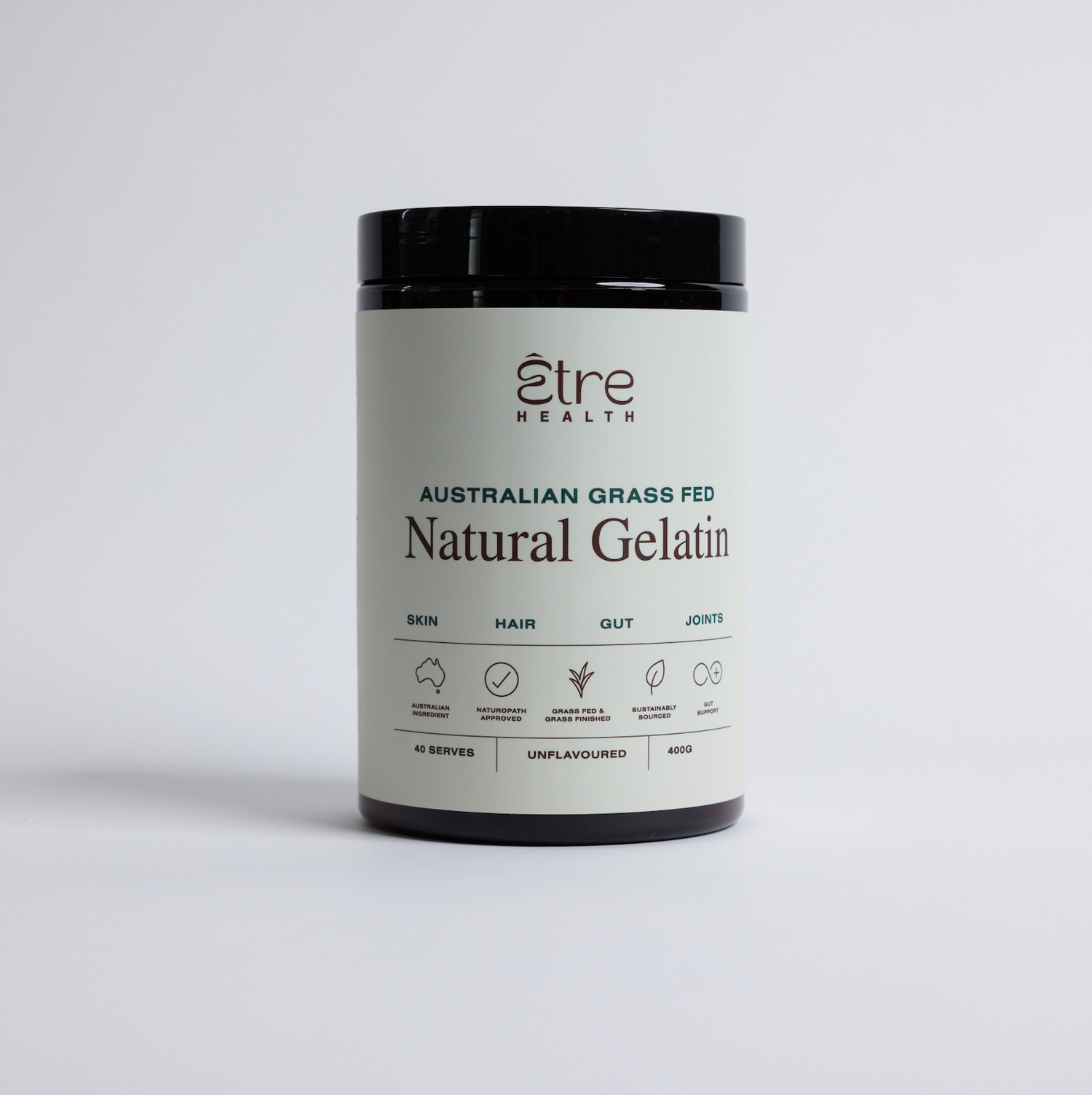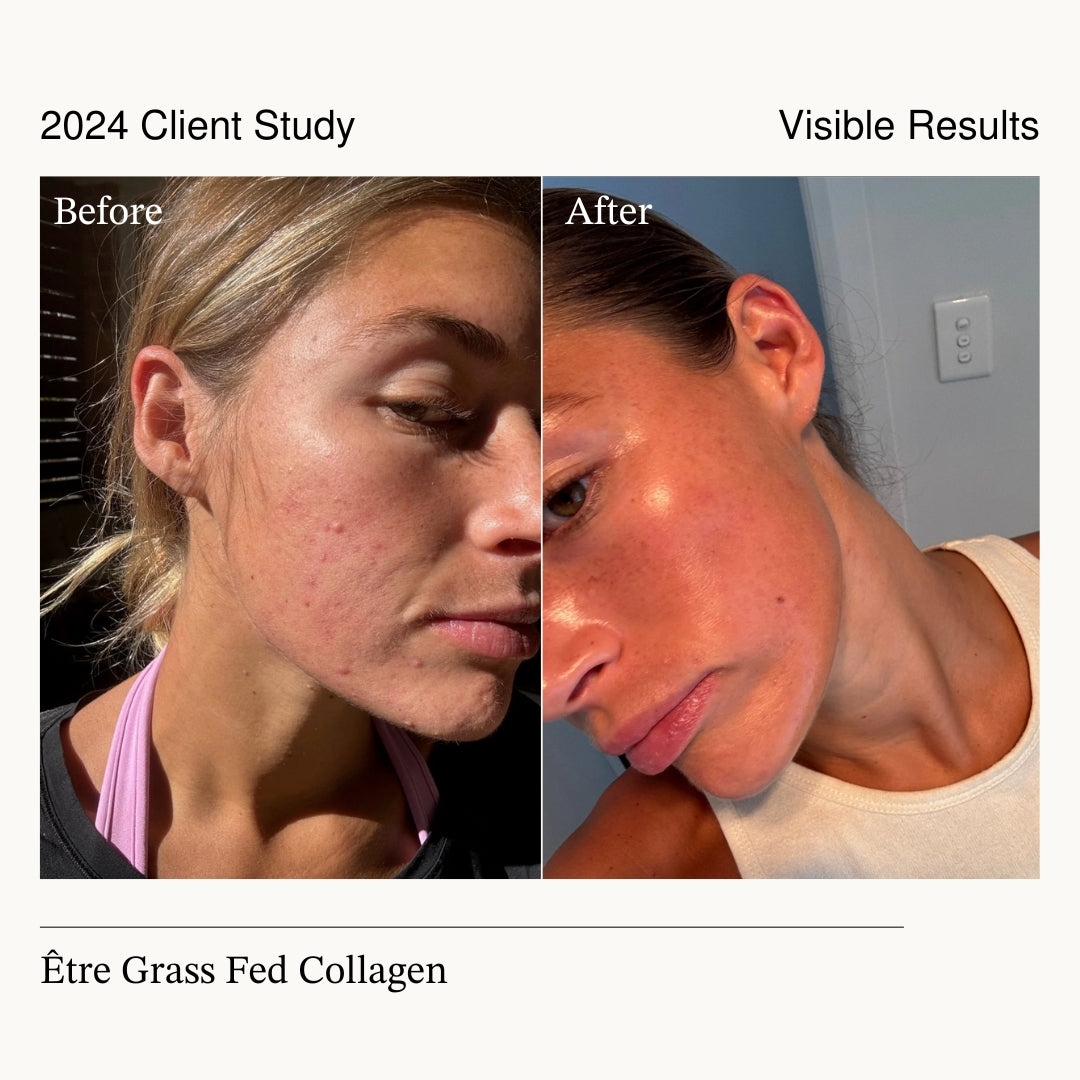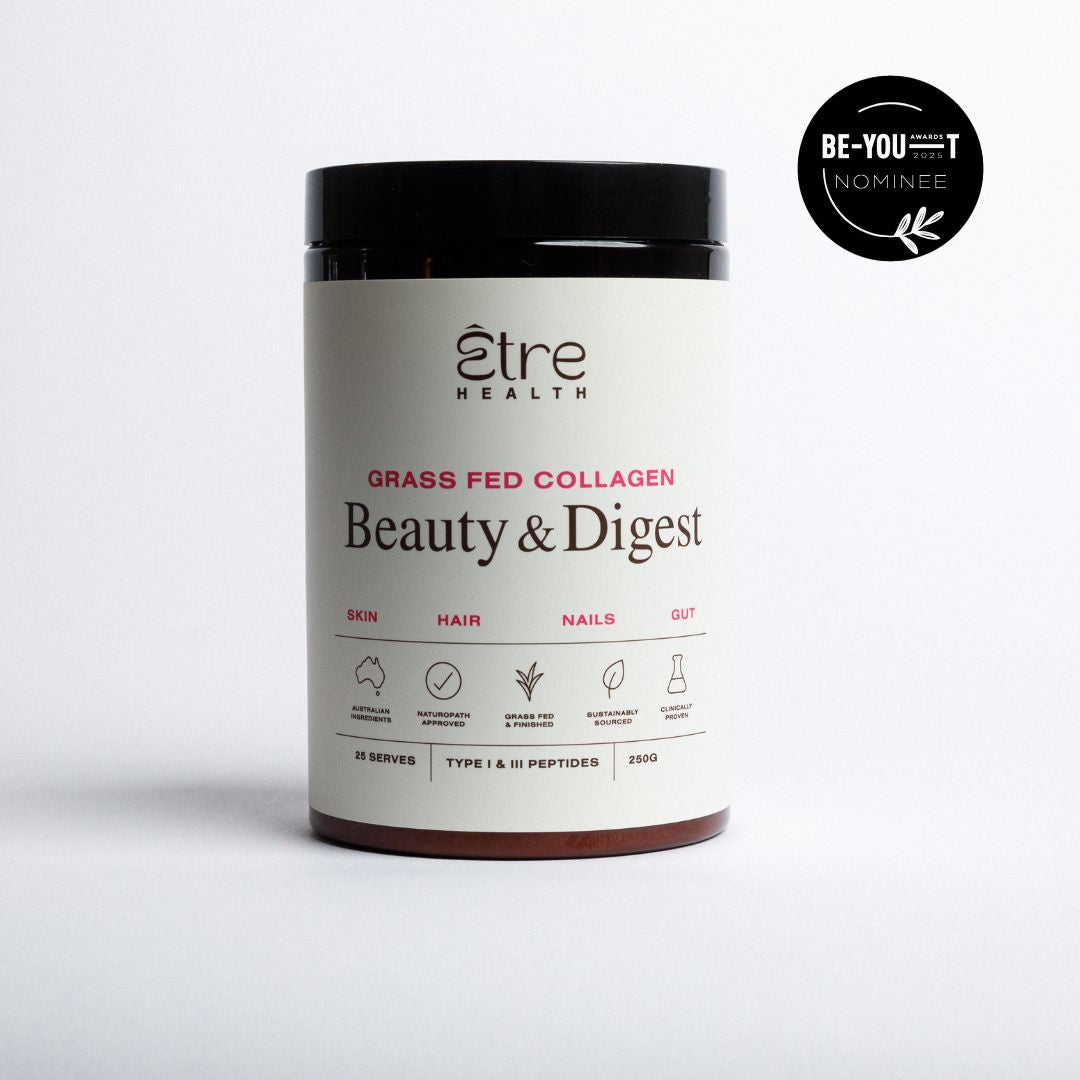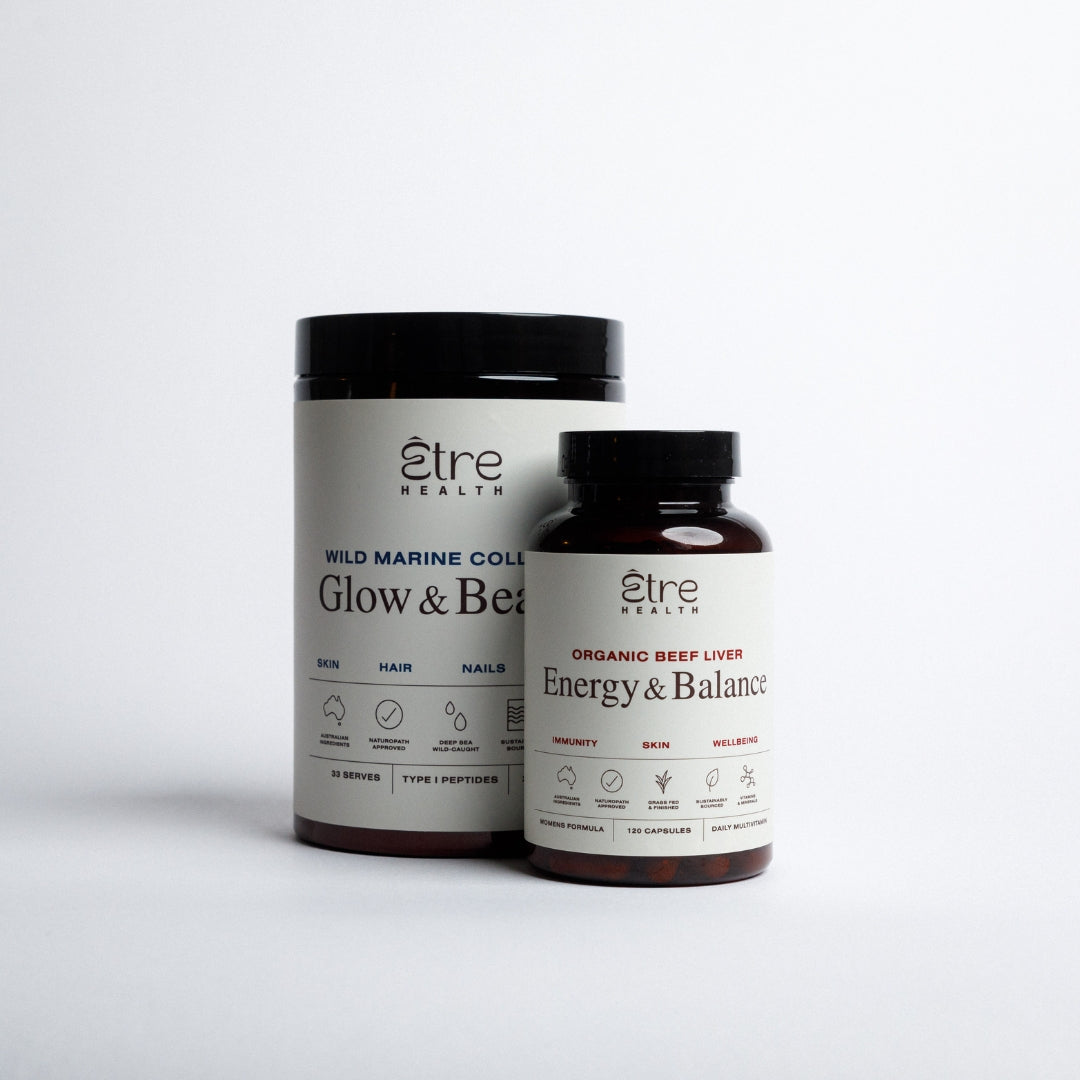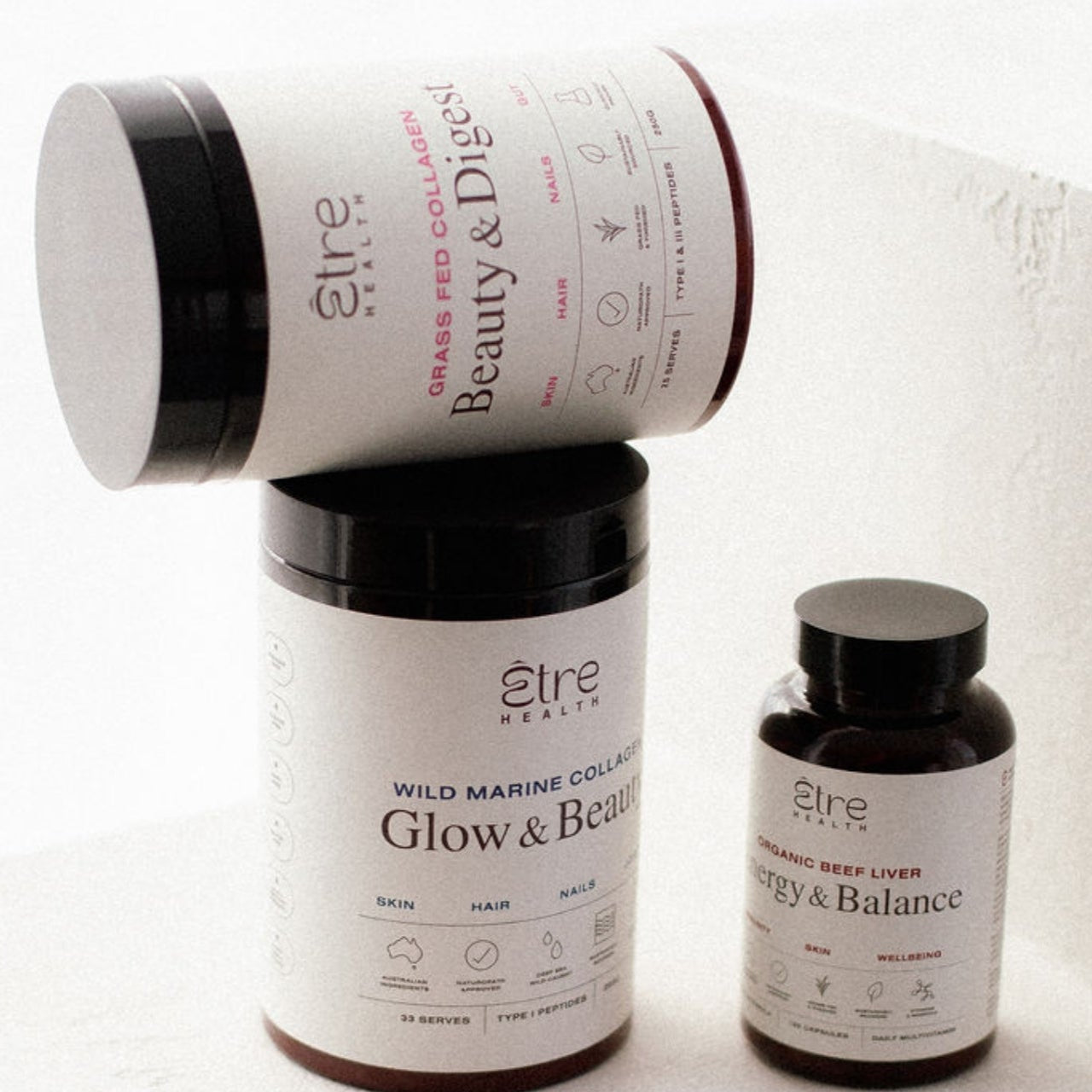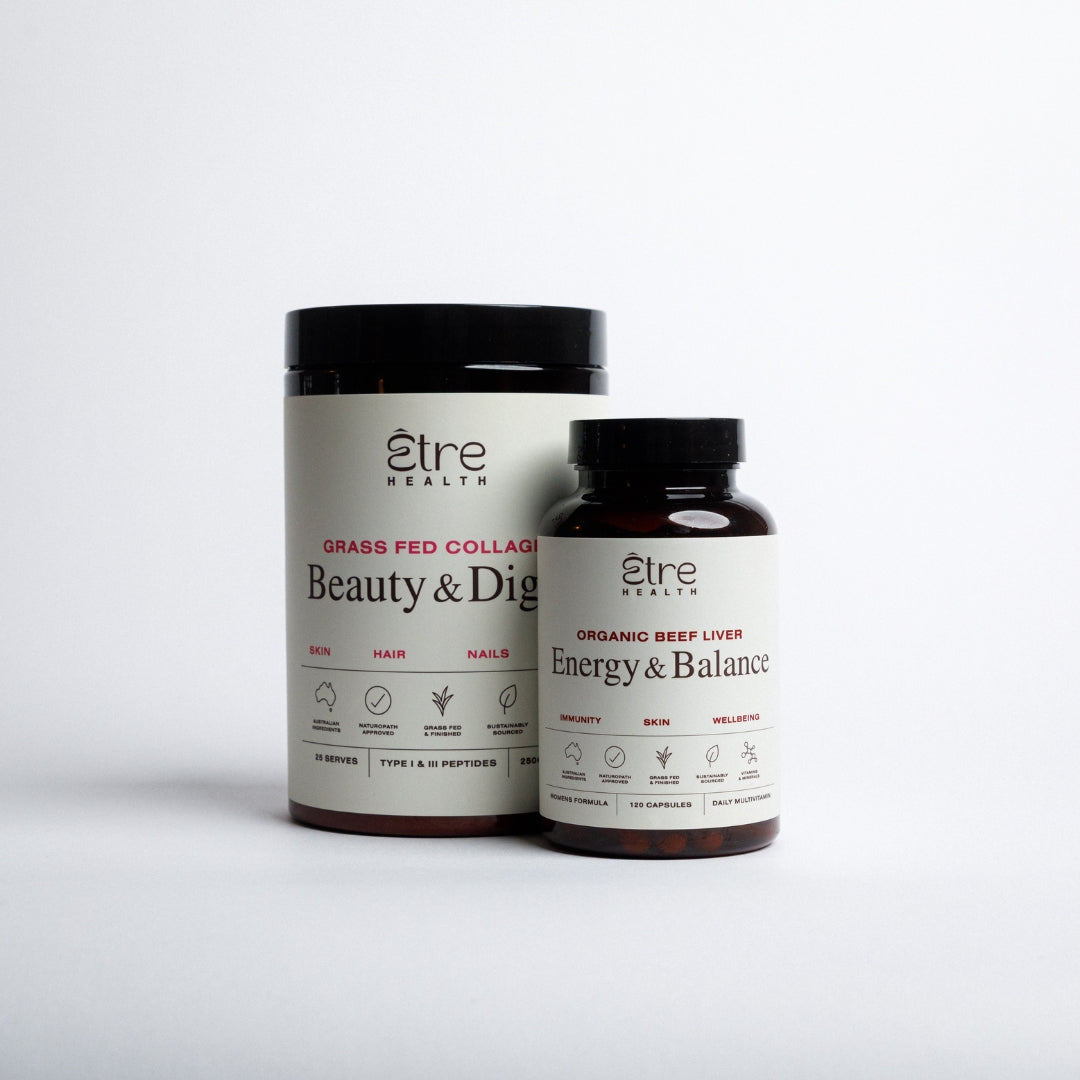We explore the different elements of Hormones and all you need to know about optimising your health.
Our Organic Beef Liver is full of 'retinol' which is the active form of Vitamin A. This vitamin is crucial for the production of specific hormones: Pregnenolone, Progesterone and DHEA. In addition our Collagens are a great source of amino acids (arginine, glutamine, glycine and proline). We need amino acids to produce healthy levels of hormones.
Balancing Hormones
When starting the journey to balancing hormones, it is important to establish steady blood sugar levels and a rich sleep routine, as sleep disruption is a common issue for women. Those who have trouble falling asleep may experience an inverted cortisol pattern, where cortisol levels are highest at bedtime rather than lowest. This can be caused by factors such as prior use of birth control hormones, overconsumption of caffeine, chronic stress, and exposure to bright lighting at night.
To help an elevated cortisol level, it is important to establish a consistent circadian rhythm, including regular wake and sleep times, regular meal times, and time spent outdoors amongst nature and sunlight. Nutritional focus is also important in supporting the hypothalamus and pituitary glands. Digestion and blood sugar support, management of chronic prolonged stress, support of detoxification and elimination, and addressing specific hormone imbalances are also very important for hormone balance.
It is also important to address certain lifestyle triggers to help support the healing journey of hormonal in-balance, such as a low-fat, high-sugar, high-carb diet, over-committed lifestyle, caffeine, alcohol and recreational drugs, chronic infections, GMOs, gut permeability, electromagnetic fields, radiation, antibiotics and other prescription medications, and toxic personal care and cleaning products.
Inflammation
When it comes to symptoms of hormonal imbalance, it is important to look at inflammation, which can often manifest as pain. Pain serves as a signal for our bodies to pay attention. Research suggests that inflammation may be the underlying cause of many chronic illnesses. The hormone cortisol, produced by the adrenal glands, is responsible for reducing inflammation in the body. In cases of chronic inflammation, the body prioritises cortisol production over sex hormone production, resulting in imbalances.
The adrenal glands are vital to our survival. They secrete various hormones that help the body manage stress and inflammation. Ideally, our bodies function best when we encounter short periods of stress followed by long periods of rest and relaxation. However, due to the fast-paced nature of westernised, modern life, many of us experience the opposite - chronic stress with only occasional periods of rest.
Adrenal dysfunction can be caused by a variety of stressors, including:
• Unresolved emotional stress such as anxiety, fear, worry, anger, guilt, or depression
• Late nights and insufficient sleep
• Overwork, whether physical or mental, including excessive exercise
• Nutritional deficiencies
• Refined sugars such as white sugar, brown sugar, corn syrup, fructose, dextrose, dextrin, high fructose corn syrup, etc. found in most processed foods
• Chronic pain
• Chronic or severe allergies
• Trauma or an injury
Managing Chronic Stress
Prolonged stress is often cited by many healthcare practitioners as the leading cause of chronic inflammation and illnesses. To attain long-term hormonal balance, it's crucial to address chronic stress. The first step is to create more space and time in your schedule by setting priorities and being realistic.
In today's world, technology and cultural pressures can be overwhelming, making it challenging to establish healthy boundaries and safe spaces. Without them, our lives become consumed by constant noise. To combat this, limit your availability through email and phone, learn to decline excessive commitments, and refuse to be driven by the illusion of urgency. Turning off your devices before dinner, spending time outdoors daily without any devices, practicing quietness through journaling, praying, or meditating, and being still are some ways to create safe spaces.
Another significant source of chronic stress is unhealthy relationships. Find solutions to build strong relationships and surround yourself with people who encourage you and inspire you to do the same for others.
Detoxification
In order to achieve hormonal balance, gentle detoxification can be very helpful. Simple support therapies such as castor oil packs, dry brushing, dry sauna, liver-gallbladder flushes, and coffee enemas are always helpful at excreting toxins.
Sleep
Sleep is a powerful tool for restoring our bodies, and best of all, it's completely free.
Drinking warm bone broth or raw milk before bed. Both are rich in minerals that can help restful sleep.
Melatonin supplements may also be helpful in restoring the bodies restful state.
Hormone balance is a very delicate subject. However there is lots of ways to start the journey using whole-foods and gentle practices like focusing on quality sleep, and incorporating certain foods that are rich in nutrients.
We also suggest speaking to a professional as this is not medical advice and is not intended to treat, diagnose or prevent disease.


